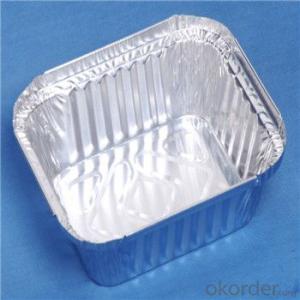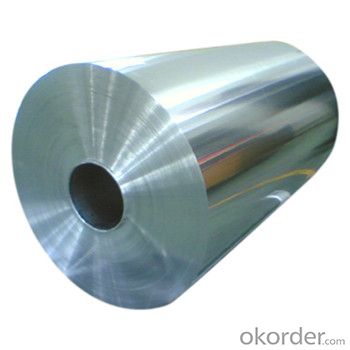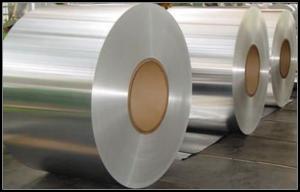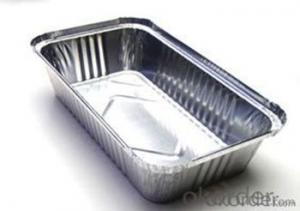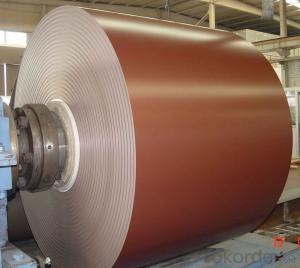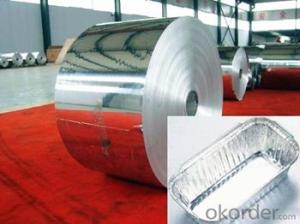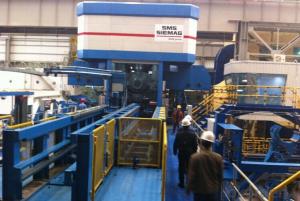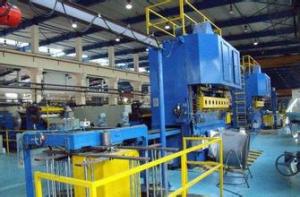Hastings Aluminum Coil Stock - Aluminum Foil for Container with Competitive Price in Roll
- Loading Port:
- China main port
- Payment Terms:
- TT OR LC
- Min Order Qty:
- 5 m.t.
- Supply Capability:
- 5000 m.t./month
OKorder Service Pledge
OKorder Financial Service
You Might Also Like
Specification
1. Description of Aluminum Foil For Container With Competitive Price In Roll
| Alloy No. | Thickness (mm) | Width (mm) | Temper | |
| A1145,A1235,A8011 Household Foil | 0.005-0.2 | 20-1700 | O,H14,H18,H19,H24 | |
| A3003,A8011 Semi Rigid Container Foil | 0.005-0.2 | 20-1700 | O,H14,H18,H19,H24 | |
| A8011,A8021 Pharmaceutical Foil | 0.005-0.2 | 20-1700 | O,H14,H18,H19,H24 | |
| A8011 Foil Label | 0.005-0.2 | 20-1700 | O,H14,H18,H19,H24 | |
| A1145,A1100,A1235,A8001 Fexible Packing Foil | 0.005-0.2 | 20-1700 | O,H14,H18,H19,H24 | |
| ID | 76mm,152mm,200mm,300mm | |||
| Packing : Export wooden case | ||||
| Standards:ASTM-B209. EN573-1, GB/T3880.1-2006 | ||||
| Quality of material: totally free from defects like white rust, oil patches, roll marks, edge damage, camber, dents, holes, break lines, scratches and free from coil set | ||||
2. Application of Aluminum Foil For Container With Competitive Price In Roll
Mainly used in package for food,drinking,cigarette,Pharmaceutical,photograph,daily necessities,power capacitor,construction,auto,boat,celling,lable,etc
3. Feature of Aluminum Foil For Container With Competitive Price In Roll
Aluminium foil is available in a variety of formats. In addition to a range of widths and lengths there are textured versions and ready-cut sheets, making it easy to use without unreeling and tearing. ‘Non-stick’ foil can solve many problems, such as baked-on food. Another special foil is black on one side, which transfers radiant heat more efficiently from the black side, making it ideal for roasting.
Most households are used to having aluminium foil in the home. It has become an essential part of modern household convenience – for cooking, reducing cleaning chores in the kitchen and for its many uses around the home, garden or workshop. In commercial kitchens too – restaurants, canteens, schools and hospitals, etc.
4. Certificate:
SGS and ROHS(if client request, paid by client), MTC(plant provided), Certificate of Origin(FORM A, FORM E, CO), Bureau Veritas and SGS (if client request, paid by client), CIQS certificate
5. Image of Aluminum Foil For Container With Competitive Price In Roll
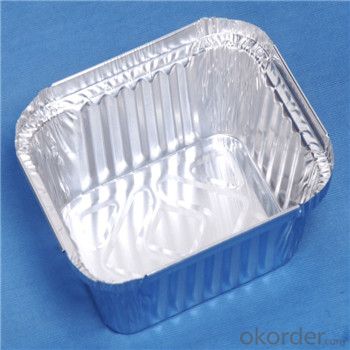
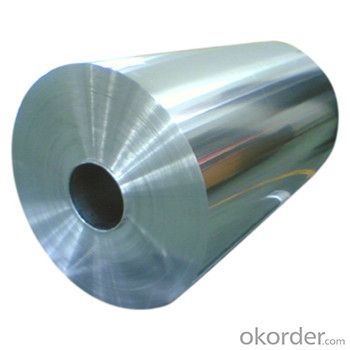
6. FAQ
1) What is the delivery time?
Dpends on actual order, around 20 days
2) What is the QC system:
We have QC staff of 20 persons and advanced equipment, each production is with MTC traced from Aluminum ingot lot.
3) What market do you mainly sell to?
Australia, America, Asia, Middle East, Western Europe, Africa etc
- Q: What is the maximum width-to-thickness ratio for aluminum coils?
- The maximum width-to-thickness ratio for aluminum coils is influenced by various factors, including the specific alloy, temper, and intended application. Industries like construction, automotive, and packaging commonly employ aluminum coils, which may necessitate different width-to-thickness ratios. Typically, the width-to-thickness ratio for aluminum coils ranges from 100:1 to 200:1. However, it is crucial to recognize that this range can fluctuate depending on the specific alloy and temper. Thicker coils generally possess a lower width-to-thickness ratio, while thinner coils may have a higher ratio. High-strength alloys, particularly those utilized in aerospace applications, typically exhibit lower width-to-thickness ratios due to their heightened strength requirements. Conversely, coils used in less demanding applications might have higher width-to-thickness ratios. To determine the appropriate width-to-thickness ratio for a specific aluminum coil, it is essential to consult relevant industry standards, specifications, or manufacturer guidelines. These guidelines take into account the intended use, mechanical properties, and performance requirements, ensuring that the coil is suitable for its intended application while maintaining structural integrity and functionality.
- Q: what is aircraft grade aluminum?
- Military Grade Aluminum
- Q: I have found many articles claiming that the aluminum content in soy (baby) formula is very high.What I am wondering is- does regular old soy milk for adult consumption also have very high aluminum content?I am extensively researching all possible ways to relieve my 14 month olds terrible constipation. He is not allergic to milk- he was on a milk-based formula. We VERY slowly switched over to whole cow's milk- which turned out to once again be terribly constipating. It was suggested I give lactose-free milk a try- which has seemed to help a little bit- it was working OK for a few days- but he did have quit the hard (and painful) bowel movement a couple days ago. We are trying other options- juices, he's active, we are trying to get enough fiber into this picky eater's diet. I am just researching the possibility of soy milk if this problem persists.I am not willing to give it to him if the aluminum content is even a small possibility. I am not finding much info about adult soy milk. Anyone??
- Soy is known to have a lot of hormones in it. Not good for a growing baby. A study even showed that female infants that were fed soy formula went into puberty a lot sooner than girls that were fed breastmilk or regular formula.
- Q: Can aluminum coils be used for outdoor applications?
- Yes, aluminum coils can be used for outdoor applications. Aluminum is a highly versatile and durable material that can withstand various weather conditions and temperatures. It is resistant to corrosion, making it suitable for outdoor environments where moisture and humidity are present. Additionally, aluminum coils are lightweight, which makes them easier to transport and install in outdoor settings. They are commonly used in outdoor applications such as roofing, siding, gutters, and HVAC systems. Overall, aluminum coils are a reliable choice for outdoor applications due to their strength, corrosion resistance, and longevity.
- Q: What are the maintenance requirements for aluminum coils?
- To ensure optimal performance and longevity, aluminum coils require regular cleaning and inspection. It is recommended to clean the coils at least once a year, or more frequently in areas with high pollution or corrosive environments. Use a mild detergent or coil cleaner along with a soft brush or cloth to remove any accumulated dirt, dust, or debris from the coils' surface. Regular inspection is also crucial to identify any signs of damage, corrosion, or leakage. Bent fins, dents, or corrosion should be promptly addressed to prevent further harm and maintain coil efficiency. If there are any indications of leakage, it is essential to have a professional technician inspect and repair the coils to prevent potential refrigerant leaks. Additionally, it is advisable to keep the area around the coils clean and free from obstructions that may hinder airflow, such as leaves, plants, or debris. This will ensure proper airflow and prevent the coils from overworking, which can result in inefficiency and possible damage. In conclusion, maintaining aluminum coils involves regular cleaning, inspection for damage, corrosion, or leakage, and keeping the surrounding area clear for optimal performance and longevity. By following these maintenance practices, you can ensure the efficient functioning of the aluminum coils and extend their lifespan.
- Q: What are the potential applications of coil-stucco aluminum coils?
- Coil-stucco aluminum coils have various potential applications due to their unique properties. They are commonly used in the construction industry for roofing, siding, and facades, as their stucco surface provides enhanced durability and weather resistance. These coils are also used in the manufacturing of appliances, such as refrigerators and ovens, as well as in the automotive industry for trim and decorative purposes. Furthermore, coil-stucco aluminum coils can be utilized in the packaging industry for containers and cans due to their lightweight and corrosion-resistant nature.
- Q: How do aluminum coils compare to copper coils in terms of performance?
- Aluminum coils and copper coils serve as two commonly used types of heat exchanger coils within heating, ventilation, and air conditioning (HVAC) systems. Although both materials effectively transfer heat, they differ in terms of performance. Due to its superior heat transfer properties, copper coils have long been the favored option for HVAC systems. Copper possesses excellent heat conductivity, enabling efficient thermal energy transfer. Consequently, copper coils effectively cool or heat the surrounding air, resulting in quicker and more efficient temperature control. Conversely, aluminum coils exhibit lower heat transfer efficiency compared to copper coils. Aluminum proves to be a poorer heat conductor, necessitating a larger surface area to achieve the same level of heat transfer as copper. Consequently, aluminum coils tend to be larger in size to compensate for their inferior heat transfer capabilities. However, aluminum coils possess certain advantages over copper coils. Firstly, aluminum boasts a lightweight nature, facilitating easier handling and installation. This proves particularly beneficial in situations where weight restrictions or handling limitations are present. Secondly, aluminum coils display greater resistance to corrosion in comparison to copper coils. Copper is susceptible to corrosion over time, especially in environments with high humidity or exposure to specific chemicals. In contrast, aluminum naturally forms a protective oxide layer, which aids in corrosion prevention. This results in longer-lasting coils and a reduced likelihood of refrigerant leaks. In conclusion, while copper coils offer superior heat transfer capabilities, aluminum coils possess their own benefits, such as lighter weight and enhanced corrosion resistance. Ultimately, the choice between aluminum and copper coils depends on the specific requirements of the HVAC system, including desired performance, budget, and environmental factors.
- Q: What are the common problems faced with aluminum coils?
- Some common problems faced with aluminum coils include corrosion, poor heat transfer, refrigerant leaks, and coil damage due to mechanical stress or improper maintenance.
- Q: Can aluminum coils be custom-made to specific requirements?
- Yes, aluminum coils can be custom-made to specific requirements.
- Q: Are there any safety concerns when handling aluminum coils?
- Yes, there are some safety concerns when handling aluminum coils. One of the main concerns is the risk of injury from sharp edges. Aluminum coils are typically formed into long, thin sheets that can have sharp edges. It is important to handle them with care and wear appropriate protective gloves to avoid cuts and abrasions. Another safety concern is the potential for injury due to the weight of the coils. Aluminum coils can be quite heavy, especially when they are stacked together. It is important to use proper lifting techniques and equipment to prevent strains and back injuries. Additionally, there is a potential risk of fire when handling aluminum coils. Aluminum is a highly flammable material and can ignite if exposed to sparks, open flames, or high temperatures. It is crucial to store and handle aluminum coils away from any potential ignition sources and ensure that the area is well-ventilated to prevent the buildup of flammable vapors. Finally, it is important to be aware of the potential health risks associated with aluminum. While aluminum itself is not considered highly toxic, there is some evidence to suggest that prolonged exposure to high levels of aluminum can be harmful to human health. Therefore, it is important to take appropriate precautions, such as wearing respiratory protection when working with aluminum coils in dusty environments and following proper hygiene practices to minimize the risk of exposure. Overall, with proper training, precautions, and adherence to safety guidelines, the risks associated with handling aluminum coils can be minimized.
Send your message to us
Hastings Aluminum Coil Stock - Aluminum Foil for Container with Competitive Price in Roll
- Loading Port:
- China main port
- Payment Terms:
- TT OR LC
- Min Order Qty:
- 5 m.t.
- Supply Capability:
- 5000 m.t./month
OKorder Service Pledge
OKorder Financial Service
Similar products
Hot products
Hot Searches
Related keywords
